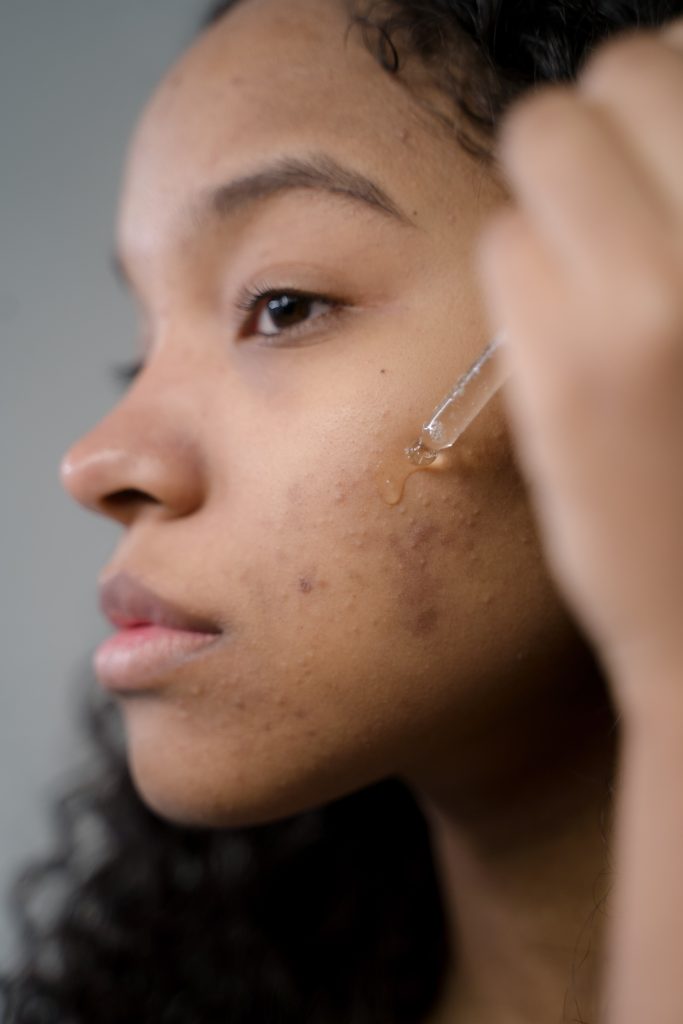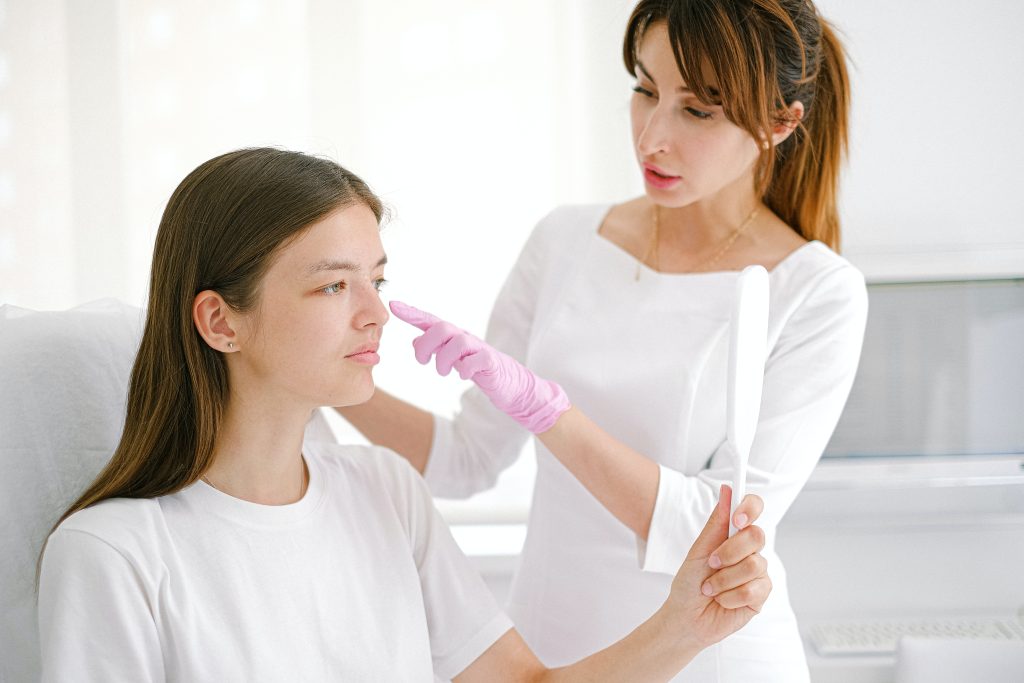Discover how diet and lifestyle choices can impact skin redness and learn effective strategies to alleviate this common skin concern.
Can Diet and Lifestyle Choices Exacerbate Skin Redness?

If you’ve ever dealt with skin redness, you know just how frustrating it can be. Whether it’s occasional flushes or a chronic condition, finding ways to alleviate redness can make a huge difference in your overall comfort and confidence. But did you know that your diet and lifestyle choices could be exacerbating this issue? In this article, we’ll explore the various factors that contribute to skin redness and how you can make small changes to your daily routine to help minimize it.
Understanding Skin Redness: Causes and Symptoms
Skin redness, also known as erythema, is a common condition that can affect people of all ages and skin types. It can manifest as a subtle flush or intense patches of redness on the face, neck, or other parts of the body. Understanding the causes and symptoms of skin redness is essential in determining the best course of action for managing it.
What is Skin Redness?
Skin redness is a result of increased blood flow to the skin’s surface, often triggered by various factors such as allergies, inflammation, or a heightened sensitivity to certain stimuli. This increased blood flow can lead to visible redness and warmth in the affected areas.
When it comes to skin redness, it is important to note that it is not a standalone condition, but rather a symptom of an underlying issue. By understanding the root cause of the redness, you can effectively address it and prevent further discomfort.
One common cause of skin redness is sunburn. Prolonged exposure to the sun’s harmful UV rays can cause the skin to become inflamed and red. This is why it is crucial to protect your skin by wearing sunscreen and seeking shade when the sun is at its peak.
Rosacea is another common cause of skin redness. It is a chronic skin condition that primarily affects the face, causing redness, visible blood vessels, and sometimes even small bumps or pimples. While the exact cause of rosacea is unknown, certain triggers such as spicy foods, alcohol, and extreme temperatures can exacerbate the symptoms.
Eczema, also known as atopic dermatitis, is a condition characterized by dry, itchy, and inflamed skin. It can cause redness in various parts of the body, especially in the folds of the skin. Eczema flare-ups can be triggered by irritants, allergens, stress, or changes in temperature.
Allergies can also contribute to skin redness. When the immune system reacts to an allergen, it can cause inflammation and redness in the skin. Common allergens include pollen, pet dander, certain foods, and skincare products.
Stress, both physical and emotional, can have a significant impact on the skin. When you are stressed, your body releases stress hormones that can lead to inflammation and increased blood flow to the skin, resulting in redness.
Common Causes of Skin Redness
There are numerous factors that can contribute to skin redness, including sunburn, rosacea, eczema, allergies, and even stress. Identifying the underlying cause of your redness can help you make targeted changes to your diet and lifestyle to alleviate the symptoms.
To effectively manage skin redness, it is important to adopt a holistic approach. This includes practicing good skincare habits, such as using gentle cleansers and moisturizers suitable for your skin type. Avoiding harsh chemicals and fragrances can also help reduce skin irritation and redness.
In addition to skincare, making dietary changes can also play a role in managing skin redness. Some foods, such as spicy dishes and alcohol, are known to trigger redness in individuals with rosacea. By identifying and avoiding these triggers, you can minimize the occurrence of redness flare-ups.
Furthermore, stress management techniques can be beneficial in reducing skin redness. Engaging in activities such as meditation, yoga, or deep breathing exercises can help calm the mind and body, reducing the release of stress hormones that can contribute to redness.
It is important to remember that everyone’s skin is unique, and what works for one person may not work for another. If you are experiencing persistent or severe skin redness, it is advisable to consult with a dermatologist who can provide personalized recommendations and treatment options.
The Role of Diet in Skin Health
While there isn’t a specific “redness-reducing” diet, making conscious choices about what you consume can have a significant impact on your skin’s overall health and reduce the occurrence of redness.
How Food Can Affect Your Skin
What you eat can directly affect your skin’s appearance and condition. Foods rich in antioxidants, such as fruits and vegetables, can help reduce inflammation and promote healthy skin. Antioxidants work by neutralizing harmful free radicals in the body, which can cause oxidative stress and damage to the skin cells. By incorporating a variety of colorful fruits and vegetables into your diet, you can provide your skin with a wide range of antioxidants that support its health and vitality.
In addition to antioxidants, certain nutrients play a crucial role in maintaining skin health. Omega-3 fatty acids, found in fatty fish like salmon and walnuts, help to strengthen the skin’s barrier function and reduce inflammation. Vitamin C, commonly found in citrus fruits and leafy greens, is essential for collagen production, which keeps the skin firm and supple. Including these nutrient-rich foods in your diet can contribute to a healthier complexion and potentially reduce redness.
Specific Foods That Can Cause Skin Redness
While food triggers can vary from person to person, there are a few common culprits that are known to exacerbate skin redness for many individuals. Spicy foods, such as hot peppers and curry, contain capsaicin, a compound that can cause blood vessels to dilate and result in flushing and increased redness. Similarly, alcohol consumption can lead to vasodilation, causing temporary redness and flushing of the skin.
Caffeine, found in coffee, tea, and energy drinks, is a stimulant that can also contribute to skin redness. It can increase blood flow to the skin, leading to a flushed appearance. However, it’s important to note that the effects of caffeine on skin redness can vary depending on individual sensitivity and consumption levels.
Identifying your personal triggers is crucial in managing skin redness. Keeping a food diary and recording any changes in your skin’s appearance after consuming certain foods can help you pinpoint the culprits. By eliminating or reducing the consumption of these trigger foods, you may be able to minimize skin redness and improve overall skin health.
Lifestyle Factors That Can Worsen Skin Redness
In addition to your dietary choices, certain lifestyle factors can also play a significant role in exacerbating skin redness. Understanding these factors and making practical changes can help you manage your redness more effectively.
When it comes to skin redness, stress is a major culprit. The impact of stress on skin health cannot be underestimated. When you’re under stress, your body releases hormones that can trigger inflammation and vasodilation, resulting in increased blood flow and skin redness. It’s important to find healthy ways to manage and reduce stress. Practicing mindfulness, engaging in relaxation techniques, or even seeking therapy can help alleviate redness and improve your overall well-being.
The Impact of Stress on Skin Health
Stress can wreak havoc on your body, including your skin. When you’re under stress, your body releases hormones that can trigger inflammation and vasodilation, resulting in increased blood flow and skin redness. Finding healthy ways to manage and reduce stress, such as practicing mindfulness or engaging in relaxation techniques, can help alleviate redness.
Sleep, or lack thereof, can also have a significant impact on your skin’s redness. Getting enough quality sleep is crucial for maintaining healthy skin. When you don’t get adequate rest, your body produces more stress hormones, which can lead to increased inflammation and redness. Creating a consistent sleep routine and ensuring you prioritize restful sleep can greatly benefit your skin’s overall health.
The Connection Between Sleep and Skin Redness
Getting enough quality sleep is crucial for maintaining healthy skin. When you don’t get adequate rest, your body produces more stress hormones, which can lead to increased inflammation and redness. Creating a consistent sleep routine and ensuring you prioritize restful sleep can greatly benefit your skin’s overall health.
In addition to stress and sleep, certain habits can also worsen skin redness. Alcohol and smoking, in particular, can disrupt your skin’s natural balance and contribute to increased redness. Alcohol is a vasodilator, meaning it can cause blood vessels in the skin to expand, resulting in visible redness. Smoking, on the other hand, can lead to reduced blood flow to the skin, causing a dull complexion and exacerbating redness. Reducing or eliminating these habits can significantly improve your skin’s appearance.
How Alcohol and Smoking Can Affect Your Skin
Both alcohol and smoking can disrupt your skin’s natural balance and contribute to increased redness. Alcohol is a vasodilator, meaning it can cause blood vessels in the skin to expand, resulting in visible redness. Smoking, on the other hand, can lead to reduced blood flow to the skin, causing a dull complexion and exacerbating redness. Reducing or eliminating these habits can significantly improve your skin’s appearance.
By understanding the impact of lifestyle factors on skin redness, you can take proactive steps to manage and alleviate this concern. Making changes in your daily routine, such as practicing stress management techniques, prioritizing quality sleep, and eliminating harmful habits, can go a long way in improving your skin’s health and reducing redness.
Practical Tips to Reduce Skin Redness
Now that you have a better understanding of the factors that contribute to skin redness, let’s explore some practical tips and lifestyle modifications you can implement right away to help minimize redness and promote healthier skin.
Dietary Changes to Improve Skin Health
Consider incorporating more anti-inflammatory foods into your diet, such as fatty fish, leafy greens, and berries. These foods contain beneficial nutrients that can help reduce redness and inflammation. Additionally, staying hydrated by drinking plenty of water throughout the day is essential for maintaining healthy skin.
Lifestyle Modifications for Better Skin
Avoid prolonged exposure to direct sunlight, especially during peak hours, and always wear sunscreen with a high SPF to protect your skin from harmful UV rays. Incorporating regular exercise into your routine can also improve blood circulation and promote a healthier complexion. Lastly, practicing good skincare habits, including gentle cleansing and using moisturizers suitable for your skin type, can help maintain healthier, less irritated skin.
When to Seek Medical Help for Skin Redness
While most cases of skin redness can be managed with lifestyle changes and home remedies, there are instances where seeking medical help is necessary. It’s essential to recognize when your symptoms may indicate a more serious underlying condition or require professional treatment.

Signs Your Skin Redness May Be a Serious Condition
If you experience severe and persistent redness accompanied by pain, swelling, or other concerning symptoms, it’s crucial to consult a dermatologist. These signs may indicate an underlying skin condition that requires medical intervention to manage effectively.
Treatment Options for Persistent Skin Redness
A dermatologist can offer a range of treatment options tailored to your specific needs. These may include topical medications, laser treatments, or other therapies designed to reduce redness and alleviate associated symptoms. Seeking professional help can provide you with the support and guidance necessary to manage your condition effectively.
By being mindful of your diet and making lifestyle changes that prioritize your skin’s health, you can take control of skin redness and achieve a clearer, more radiant complexion. Remember, it’s essential to listen to your body and consult a healthcare professional if your symptoms persist or worsen. With the right approach, you can minimize skin redness and enjoy healthier, happier skin.





